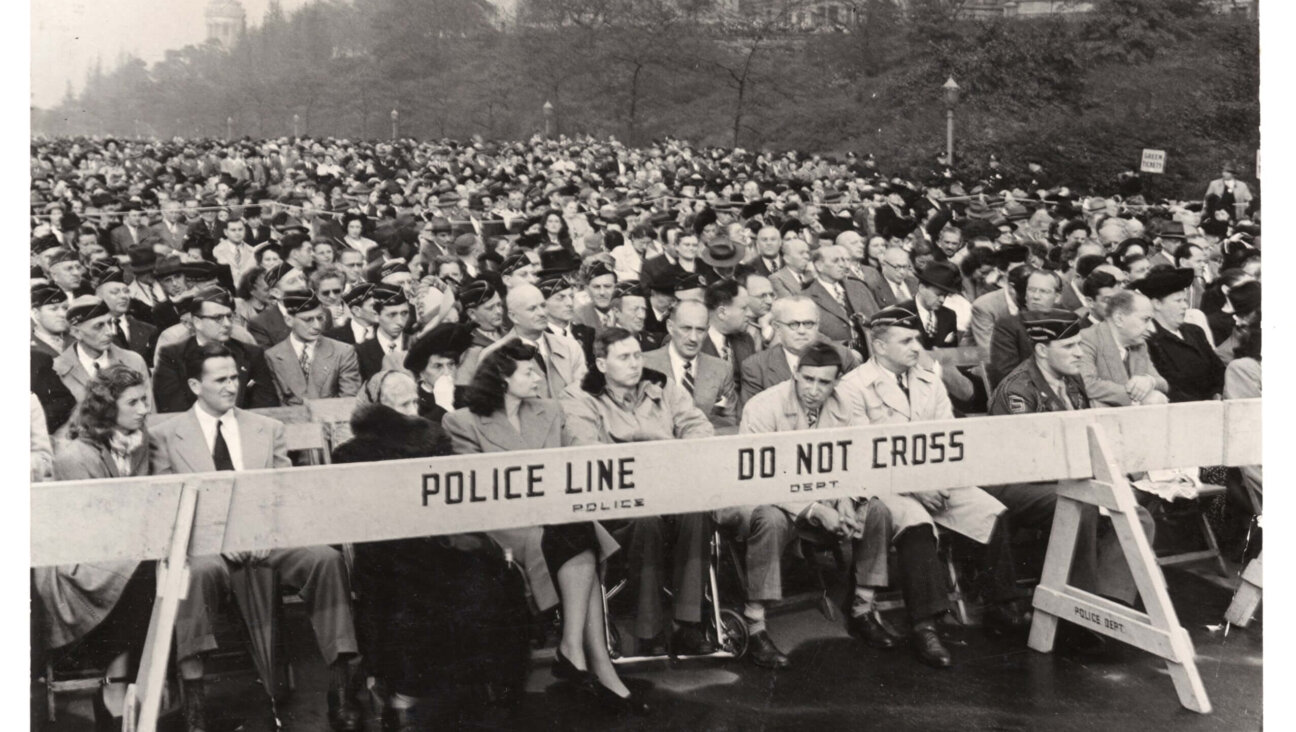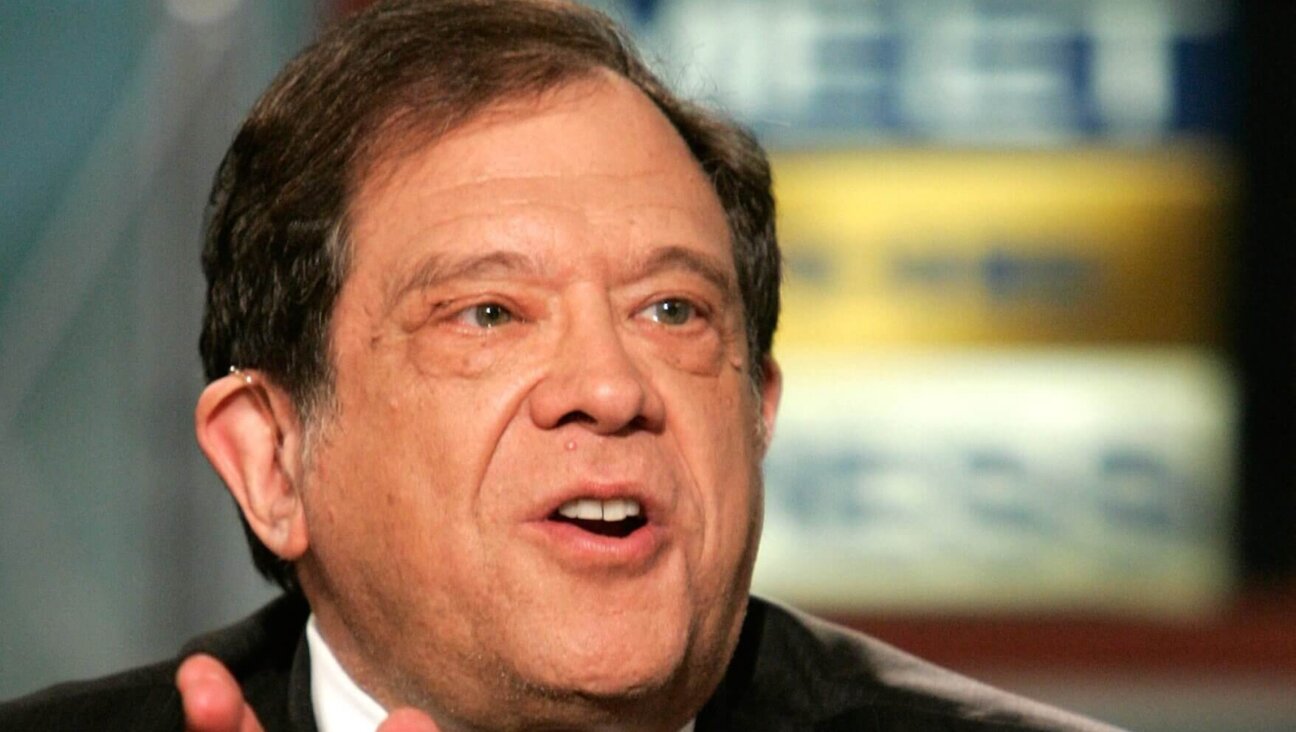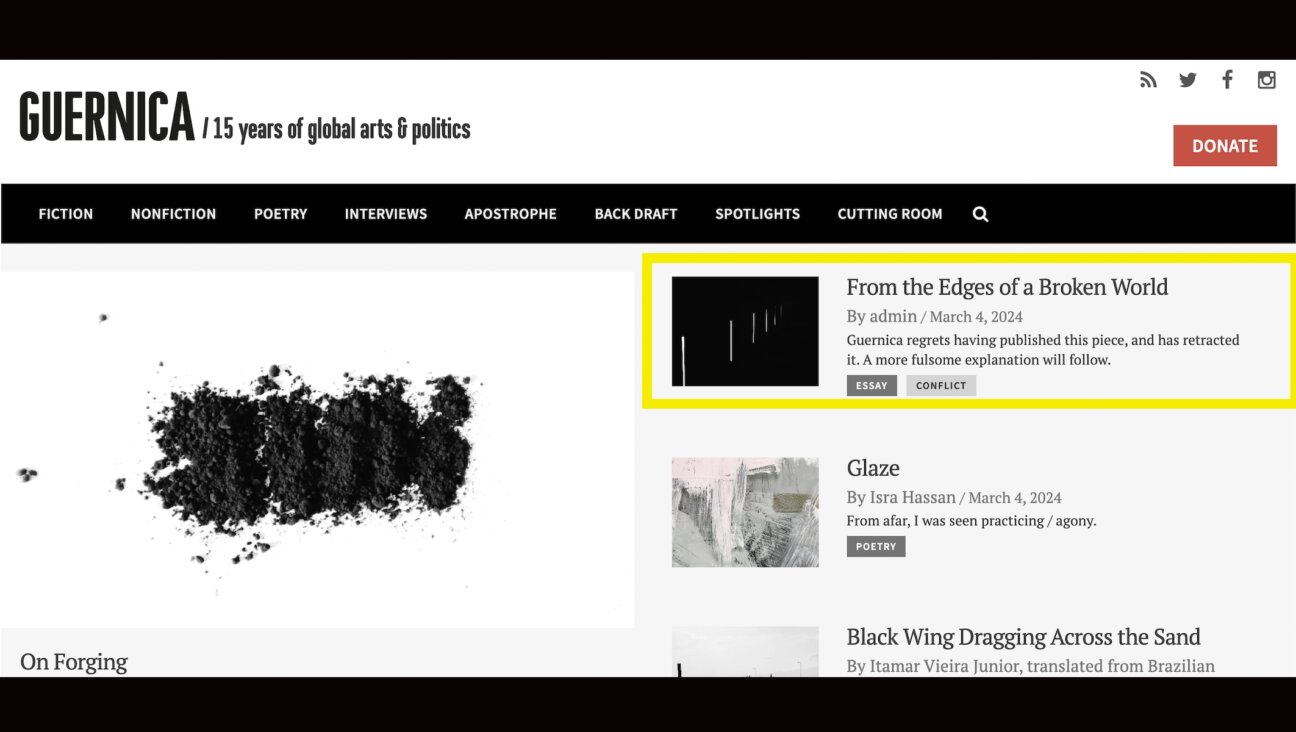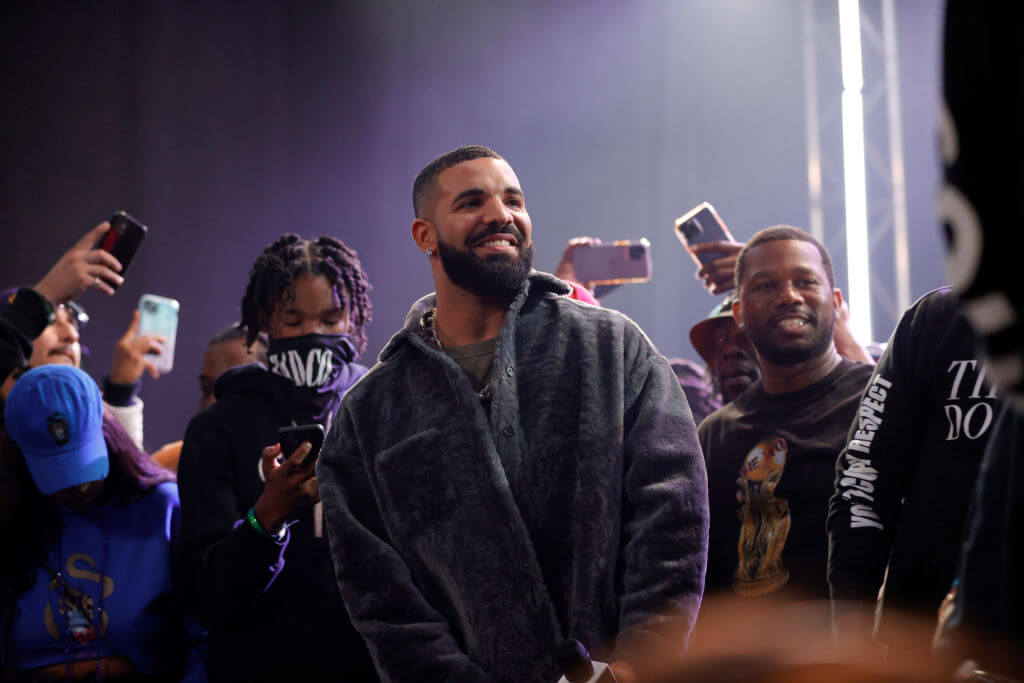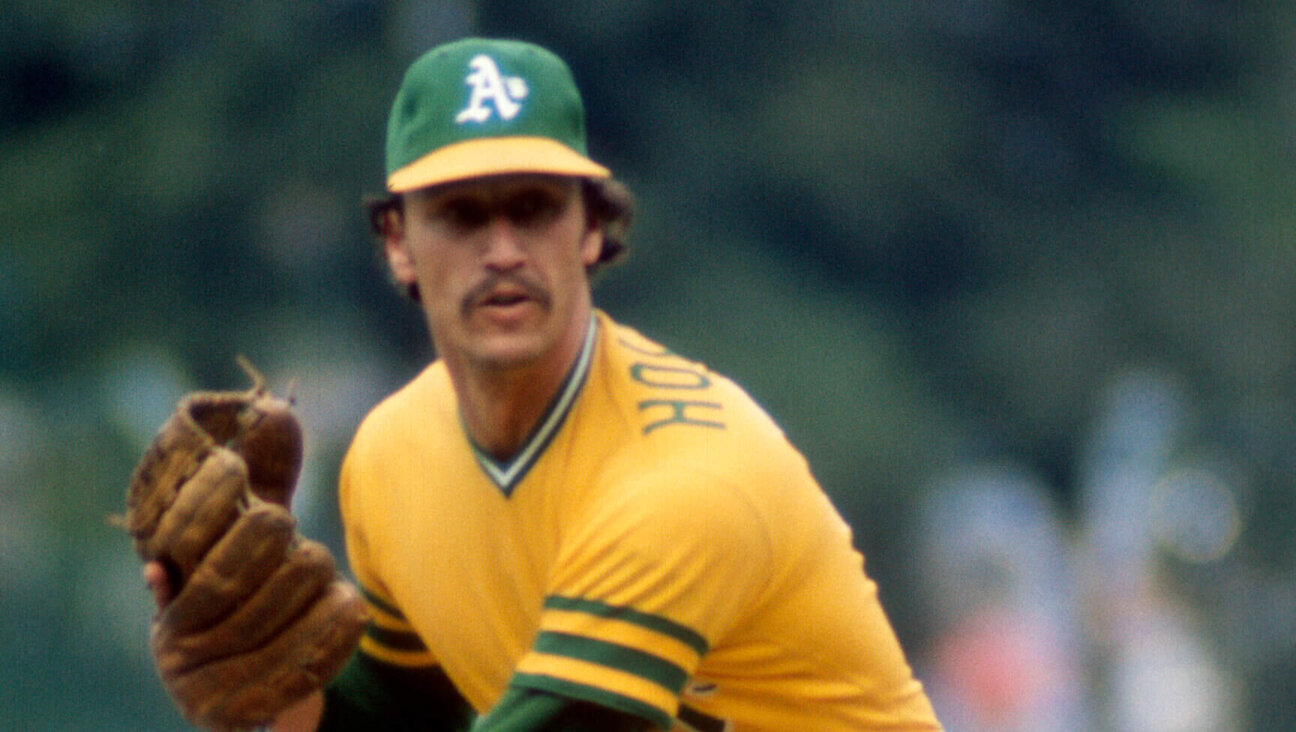From A to Zorn: Musical Tributes To History
“Great Jewish Artists Perform Great Jewish Composers,” the September 7 concert at the 92nd Street Y, launched the weeklong New York Jewish Music & Heritage Festival celebrating the 350th anniversary of Jews in America.
Festival founder and director Michael Dorf attributed the festival’s success to, among others: UJA-Federation’s John Ruskay, the Jewish Community Relations Council’s Michael Miller and Lynn Korda Kroll, chair of the National Foundation for Jewish Culture (all in the audience). Dorf credited the “23 Jews from Brazil who landed in Downtown Manhattan [in 1654]” with “starting a relationship between Manhattan and the Jews.” City Council speaker Gifford Miller declared: “Out of the story of the 23 settlers is the story of the greatest Jewish community in the Diaspora.”
Then came the music! There was Mark Feldman on violin and Sylvie Courvoisier on piano, who performed an excerpt from John Zorn’s “Masada.” Debbie Friedman’s rendition of songs by Laura Nyro (who, Friedman informed, “died of ovarian cancer”) resonated with liturgical fervor. Pianist Fred Hersch dazzled with jazz improvisations of works by Leonard Bernstein and George Gershwin. Avant-garde composer Philip Glass (whose most recent film score was for “The Hours”) performed three of his own challenging piano études.
Accompanying himself on guitar with flamenco-flavored virtuosity, David Broza (born in Israel and raised in Spain and England) sang visceral renditions of Carole King’s “Will You Love Me Tomorrow?” and “You’ve Got a Friend.” Lisa Loeb and Jill Sobule delighted with their versions of Paul Simon and Art Garfunkel’s “The 59th Street Bridge Song (Feeling Groovy)” and “Cecelia.”
At the piano, a beaming, cuddly, audience-appreciating Neil Sedaka sang several Irving Berlin classics with the audience joining in “Always.” Explaining that “the songs I sing are like my children, who live and breathe every time I perform them,” Sedaka segued into performing his own tunes: “Laughter in the Rain,” “Breaking Up Is Hard to Do” and “Love Will Keep Us Together.” He was having a ball! The audience was roaring for more! An exhilarated Sedaka looked into the wings as if to say: “What do I do now?” The fans got more Sedaka. The finale: The four-man Soulfarm ensemble with lead singer Noah Solomon Chase presented gutsy, introspective renditions of Bob Dylan’s “Forever Young” and “Seven Days,” and a Middle Eastern version of “One More Cup of Coffee.” The audience would have relished a few more refills. It was one of those “You should have been there!” nights!
Among the evening’s reception minglers were Sol Adler, the Y’s executive director; Alan Mann, executive vice president, Jewish Community Centers of North America; Howard Teich, chairman emeritus of the New York Jewish Festival, and munchkin-sized Ruth Westheimer. Back from Israel, Westheimer told me she’s off to Fairbanks, Alaska, for the Celebrities Sports Invitational at the Alyeska Resort, where she will be “auctioned off.” Proceeds will benefit the Dream Foundation, which “grants dreams” to terminally ill adults.
* * *|
In his August 29 New York Times article, “Germany: Klezmer’s Final Frontier,” Jeremy Eichler cites clarinetist Giora Feidman as being “among the artists who first toured Germany” two decades ago… [who] “discovered a public… that was wildly receptive.” In retrospect, I may have been the catalyst for that explosion of klezmer since it was through my intervention that Feidman went to Germany.
In July 1981, my husband, Joe, and I met with Dr. Simon Snopkowski and his wife, Ilse (Ruth), at the Munich Hilton. Dr. Snopkowski, who had known my father in Warsaw before the war, was a representative of the Jewish community to the Bavarian parliament. Ilse Snopkowski founded and ran the then-nascent Yiddish Festival in Munich, which, even at that early date, attracted as many as 10,000 European visitors. She asked me: “Can you recommend Jewish talent?” I promised to let her know.
At the November 1982 Greater Flushing YM-YWHA-sponsored gala, “An Evening of Jewish Soul Music,” held at the John Bowne High School auditorium, I was part of the 800-overflow audience electrified by Argentina-born clarinetist Giora Feidman’s interpretations of klezmer music and liturgical excerpts from “Gates of Prayer.” I asked his manager, Ora Yariv, if Feidman would consider performing in Germany. Maybe. The next day, I wrote to Ilse Snopkowski: “Have I got a talent for you!”
Feidman went to Munich, performed at the festival and conquered. A few years later, in New York, Ilse Snopkowski told me: “The festival made Feidman’s career in Germany and Europe.… He never went back and has made his home in Europe.” In 1986, I recommended Avi Hoffman to Snopkowski. His one-man Yiddish performance in Munich of “The World of Itzik Manger” (written by his mother, Miriam Hoffman, a contributor to the Yiddish Forward) led to gigs in Amsterdam, Regensbourg, Zurich and Warsaw. Hoffman returned to the United States, where he tours with his one-man audience pleaser, “Too Jewish?”

I hope you appreciated this article. Before you go, I’d like to ask you to please support the Forward’s award-winning journalism this Passover.
In this age of misinformation, our work is needed like never before. We report on the news that matters most to American Jews, driven by truth, not ideology.
At a time when newsrooms are closing or cutting back, the Forward has removed its paywall. That means for the first time in our 126-year history, Forward journalism is free to everyone, everywhere. With an ongoing war, rising antisemitism, and a flood of disinformation that may affect the upcoming election, we believe that free and open access to Jewish journalism is imperative.
Readers like you make it all possible. Right now, we’re in the middle of our Passover Pledge Drive and we need 500 people to step up and make a gift to sustain our trustworthy, independent journalism.
Make a gift of any size and become a Forward member today. You’ll support our mission to tell the American Jewish story fully and fairly.
— Rachel Fishman Feddersen, Publisher and CEO
Join our mission to tell the Jewish story fully and fairly.
Our Goal: 500 gifts during our Passover Pledge Drive!







